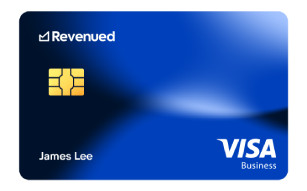How to Pay off business credit card debt with a Loan
How to Pay off business credit card debt with a Loan
How to Pay off business credit card debt
Managing and paying off business credit card debt is crucial for maintaining the financial health and long-term success of any small business. In this guide, we explore how using a business loan can help eliminate credit card debt and pave the way for greater financial stability.
The Impact of Business Credit Card Debt
Business credit card debt can quickly escalate into a significant financial burden. High-interest rates and accumulating balances drain cash flow, reduce operational capacity, and can ultimately limit growth opportunities. Additionally, late or missed payments can damage your business credit score, making future financing harder to obtain.
Key Risks:
-
Strained cash flow
-
Lowered creditworthiness
-
Missed growth opportunities
-
Higher future borrowing costs
Why Use a Business Loan for Debt Consolidation?
Consolidating business credit card debt through a loan offers several clear advantages:
-
Lower Interest Rates: Business loans often have lower rates compared to credit cards, saving money over time.
-
Simplified Repayment: One monthly loan payment replaces multiple credit card bills, making cash flow easier to manage.
-
Improved Cash Flow: Lower monthly obligations free up capital for operational needs or reinvestment.
-
Credit Score Boost: Timely loan payments help rebuild and strengthen your business credit profile.
-
Fixed Repayment Terms: Unlike revolving credit cards, business loans usually have predictable payment schedules.
Types of Business Loans for Credit Card Debt Refinancing
Different loan types suit different business needs:
-
Traditional Bank Loans: Offer competitive rates but come with strict qualifications and a slow approval process.
-
SBA Loans: Provide favorable terms with lower down payments but require time and strict documentation.
-
Online Lenders: Deliver fast funding with easier qualifications, though often at higher rates.
-
Revenue-Based Financing: Links repayment to sales volume, offering flexibility but potentially higher total costs.
Further Reading: Revenued Flex Line pricing vs MCA
Factors to Consider Before Applying for a Business Loan:
Before applying for a business loan, businesses need to take several factors into account to ensure a successful and manageable debt repayment process.
Small business loans: Compare multiple financing options
Creditworthiness and Eligibility Criteria
Creditworthiness refers to a business’s ability to repay a loan based on its credit history and financial stability. Lenders assess creditworthiness to determine the risk of lending to a business.
It is crucial for a business to have a strong credit profile and meet the lender’s eligibility criteria to increase the chances of loan approval and secure favorable terms.
Loan Amount, Interest Rates, and Repayment Terms
The loan amount, interest rates, and repayment terms directly impact a business’s ability to repay the loan. It’s essential to assess how much funding is needed, compare interest rates from different lenders to find the most favorable option and choose a repayment plan that aligns with the business’s cash flow and financial capabilities.
Developing a Debt Repayment Plan:
Creating a well-structured debt repayment plan is crucial for efficiently managing a business loan and paying off credit card and debt obligations.
Setting Clear Goals and Strategies
Setting clear and achievable goals is the foundation of an effective debt repayment plan. Businesses should define specific targets, such as reducing credit card debt by a certain percentage within a designated timeframe. Strategies can include cutting non-essential expenses, increasing revenue streams, or allocating a portion of profits toward debt repayment.
Applying for a Business Loan:
When applying for a small business loan to pay off credit card debt, gathering the necessary documents and information is a vital step.
Documents and Information Required
To complete the loan application process, businesses typically need to provide a number of documents in order to be approved. These documents typically include business financial statements (income statement, balance sheet), personal and business tax returns, business licenses and permits, bank statements, and details about the credit card debt to be refinanced.
This helps lenders assess the business’s financial health and creditworthiness before approving the loan.
Managing Credit Card Debt with a Business Loan:
Step-by-Step Process
The process of managing credit card debt with a business loan involves several essential steps. First, assess the outstanding credit card balances and identify high-interest debts. Next, explore loan options from various lenders, comparing factors such as interest rates, repayment terms, and eligibility criteria. Once a suitable loan is obtained, use the proceeds to pay off high-interest credit card balances.
Consolidate multiple debts into a single loan to simplify repayments and potentially secure more favorable terms. Lastly, develop a debt repayment plan that aligns with the business’s cash flow to ensure timely and manageable loan payments.
Paying Off High-Interest Balances
High-interest credit card balances can be a significant financial burden for businesses. By securing a business loan with lower interest rates, businesses can save money on interest payments and allocate more funds towards reducing their debt principal. This can lead to a faster and more cost-effective way to pay off high-interest credit card balances and improve overall financial stability.
Multiple Debts into a Single Loan proceeds
Dealing with multiple credit card debts can be complicated and overwhelming for companies of all sizes. By consolidating these debts into a single business loan, businesses can completely streamline their repayment process.
This approach simplifies the management of debt by having only one monthly payment to keep track of, potentially reducing the risk of missed payments and late fees. Moreover, a consolidated loan may offer more favorable terms, providing businesses with better control over their debt and financial situation.
Debt Repayment and Cash Flow Management
Repaying a business loan requires careful and diligent cash flow management. It’s essential to create a debt repayment plan that considers the business’s cash flow patterns and financial capabilities. By setting clear goals and strategies, businesses can ensure that they consistently meet their loan obligations without compromising their daily operations.
Smart budgeting, expense control, and effective revenue management are key components of successfully managing debt repayment while maintaining a healthy cash flow for the business’s overall growth and success.
Benefits, Risks, and Alternatives to Paying off Business Credit Card Debt with a Business Loan:
Benefits and Risks of Clearing Credit Card Debt with a Business Loan
Using a business loan to pay off credit card debt can offer several benefits, but it also comes with potential risks that businesses should consider before proceeding.
The biggest benefits of clearing credit card debt with a business loan include lower interest rates, easier debt management, improved credit score, enhanced cash flow, and favorable repayment terms. Some of the risks can include additional debt, eligibility challenges, collateral requirements, potential fees, and negative impacts on cash flow.
Alternatives to Business Loans for Debt Refinancing
Businesses have alternative strategies to explore for debt refinancing, apart from business loans. One option is utilizing balance transfer credit cards with low or zero-interest rate promotions, offering temporary relief by transferring credit card debt. Another approach is the debt snowball method, where businesses prioritize paying off smaller credit card balances first while gradually working toward debt clearance.
For professional assistance, reputable debt consolidation companies can help businesses negotiate with creditors for lower interest rates or improved repayment terms. Additionally, businesses can directly negotiate with credit card companies to discuss lower interest rates or settling debts for a reduced amount.
However, businesses must diligently assess their financial situation, goals, and resources before choosing the most suitable alternative to debt financing, considering each option’s unique considerations in alignment with specific needs and objectives.
Tips for Credit Card Debt Management and Prevention
Here are some valuable tips to effectively handle credit card debt and avoid falling into financial pitfalls:
- Create a Budget: Establish a comprehensive budget that outlines your income and all expenses. Allocate a portion of your budget specifically for credit card debt repayment to ensure you stay on track.
- Pay on Time and in Full: Make it a priority to pay your credit card bills on time and in full each month. By doing so, you avoid accumulating interest charges and late fees.
- Prioritize High-Interest Debts: If you have multiple credit cards with varying interest rates, focus on paying off the cards with the highest interest rates first. This approach saves you money in the long run.
- Avoid Minimum Payments: Whenever possible, pay more than the minimum required amount. By paying more, you accelerate debt repayment and reduce the overall interest you’ll pay.
- Limit Credit Card Usage: Be mindful of your credit card spending and use them only for essential purchases. Avoid unnecessary expenses that could lead to accumulating debt.
- Build an Emergency Fund: Having an emergency fund can help you avoid relying on credit cards during unexpected financial hardships.
- Negotiate with Credit Card Companies: If you find yourself struggling to make payments, don’t hesitate to reach out to your credit card companies. They may offer temporary relief or propose a payment plan that suits your current situation.
- Monitor Your Credit Score: Regularly check your credit score and credit report to ensure accuracy and identify any potential issues early on.
- Seek Professional Financial Advice: If you’re overwhelmed by credit card debt, consider consulting a financial advisor. They can provide personalized strategies to get your finances back on track.
- Stay Educated: Keep yourself informed about credit card terms, interest rates, and any policy changes that may impact your debt management.
By implementing these tips, you can effectively manage your credit card debt, build a stronger financial foundation, and prevent debt from becoming a burden in the future.
Achieving Financial Freedom through Credit Card Debt Consolidation
Achieving financial freedom through credit card debt consolidation is a practical and effective approach to improve one’s financial outlook. By consolidating multiple credit card debts into a single, more manageable loan, individuals and businesses can streamline debt repayment and take steps toward financial independence.
The first step is to assess the existing credit card debts, understanding the outstanding balances, interest rates, and the overall debt burden. With this clarity, research different debt consolidation options, such as personal loans, home equity loans, or balance transfer credit cards, to find the best fit for your financial situation.
By securing a consolidation loan with lower interest rates, borrowers can potentially save money on interest payments and work towards paying off the debt faster. With a well-structured repayment plan and a commitment to responsible financial management, credit card debt consolidation can pave the way to financial freedom, providing a clearer path to a debt-free and financially secure future.
Business credit card debt loan refinancing FAQ
What is refinancing of debt?
Debt refinancing is the process of taking out a new loan to pay off existing debts, usually with better terms or lower interest rates, to make debt management more manageable.
Is it a good idea to refinance your debt?
Debt refinancing can be beneficial if it leads to lower interest rates, reduced monthly payments, or improved repayment terms, but it’s essential to carefully consider the associated costs and ensure it aligns with your financial goals.
Can I use a business loan to pay off personal debt?
Using a business loan to pay off personal debt is generally not advisable, as it can lead to mixing personal and business finances, potentially causing legal and financial complications. It’s best to keep personal and business debts separate for clarity and proper financial management.
IN THIS ARTICLE
RELATED ARTICLES
Revenued Business Flex Line vs Ecommerce Revenue Based Financing
Learn MoreRevenued Flex Line Pricing vs. (MCA): A Comparative Analysis
Learn MoreWhat is My Business’ Credit Utilization Ratio?
Learn MoreWhy is Cash Flow Important to Your Business?
Learn More
Boost your spending power with the Revenued Business Card
Only pay for what you use at gas stations, hotels, supply stores, supermarkets and more.
Take control with the Flex Line
Check your available balance online and request a cash draw with the tap of your finger, anytime.

